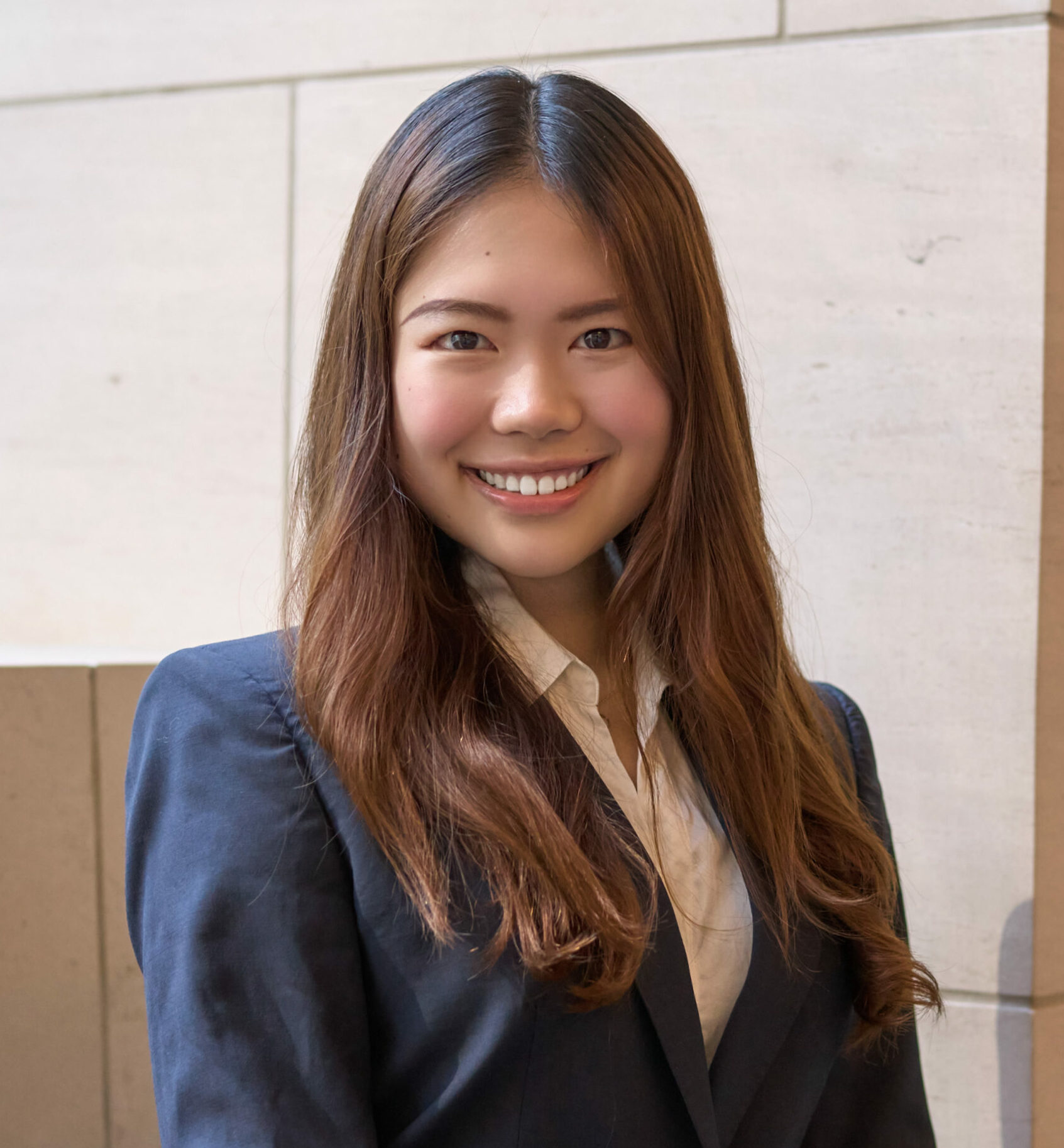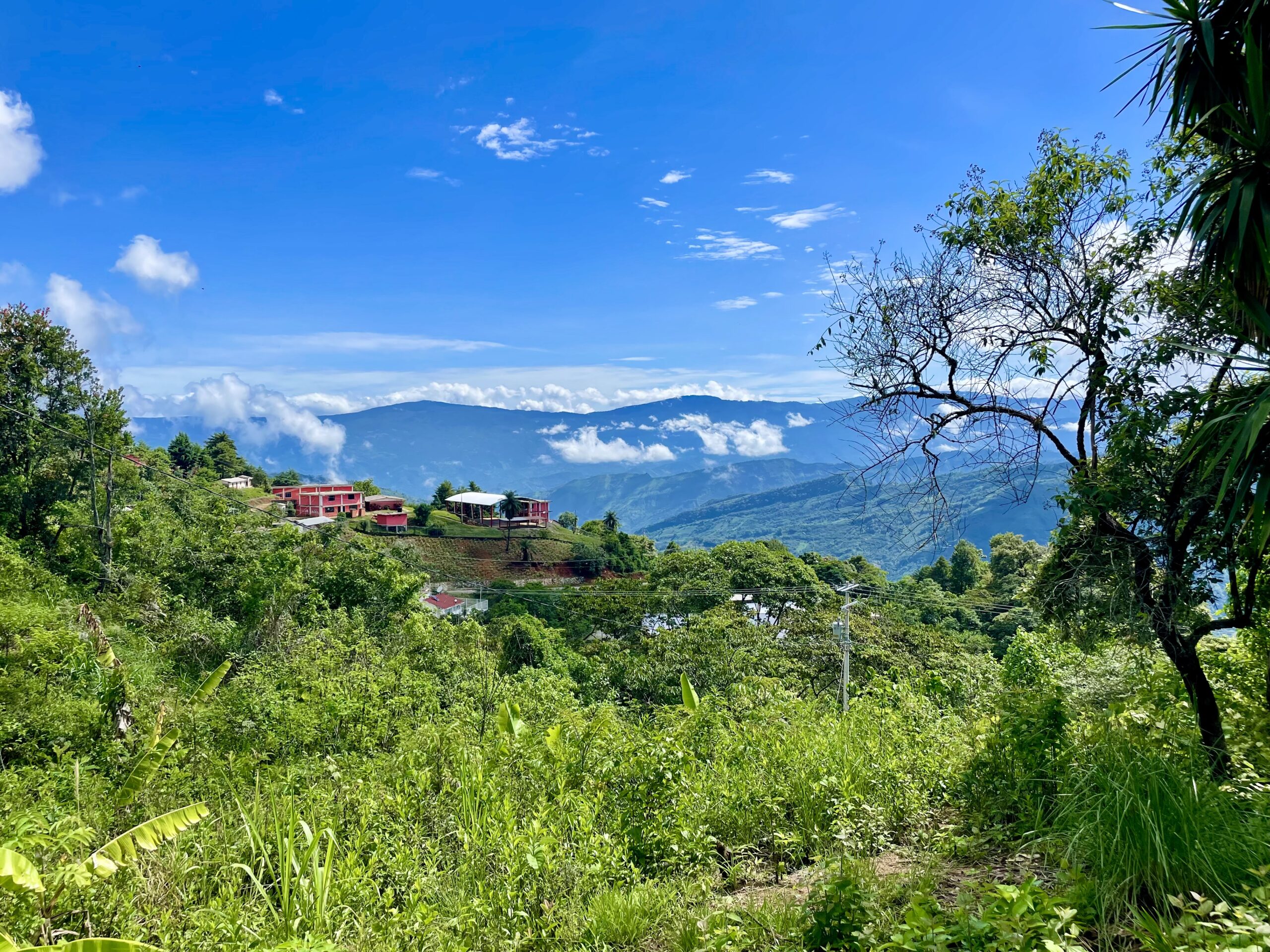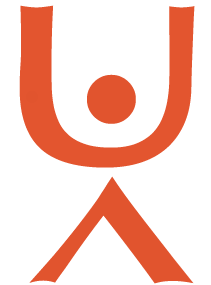Across the mountains in San Cristobal, there was the field and there were the women we partner with.
As I hugged Alma (Project Manager for FUERTE) goodbye at the office to catch my bus to the airport, she said, “Don’t forget the field. Don’t forget the women. They are the why of what we do and what we fight for.”
Chiapas is very different from Oaxaca – not only is it in the mountains but there are also more Indigenous communities in the area.

During my two days in the field, I visited many women’s houses in two villages — Balunaco and Larrainzar. Most people I met spoke Tzotzil (a Mayan language), in which I knew next to nothing other than the “hello” I learned on the way there. I was concerned about how I could possibly connect with them, with different languages, clothes, and ethnicity.
In Balunaco, the Indigenous communities I interviewed were more reserved. When I tried to interview them, their answers were brief. But like my Asian parents, they showed their love through actions. Knowing about our visit, they had started preparing a chicken potato soup (a luxury meal for special occasions) a week in advance for us.
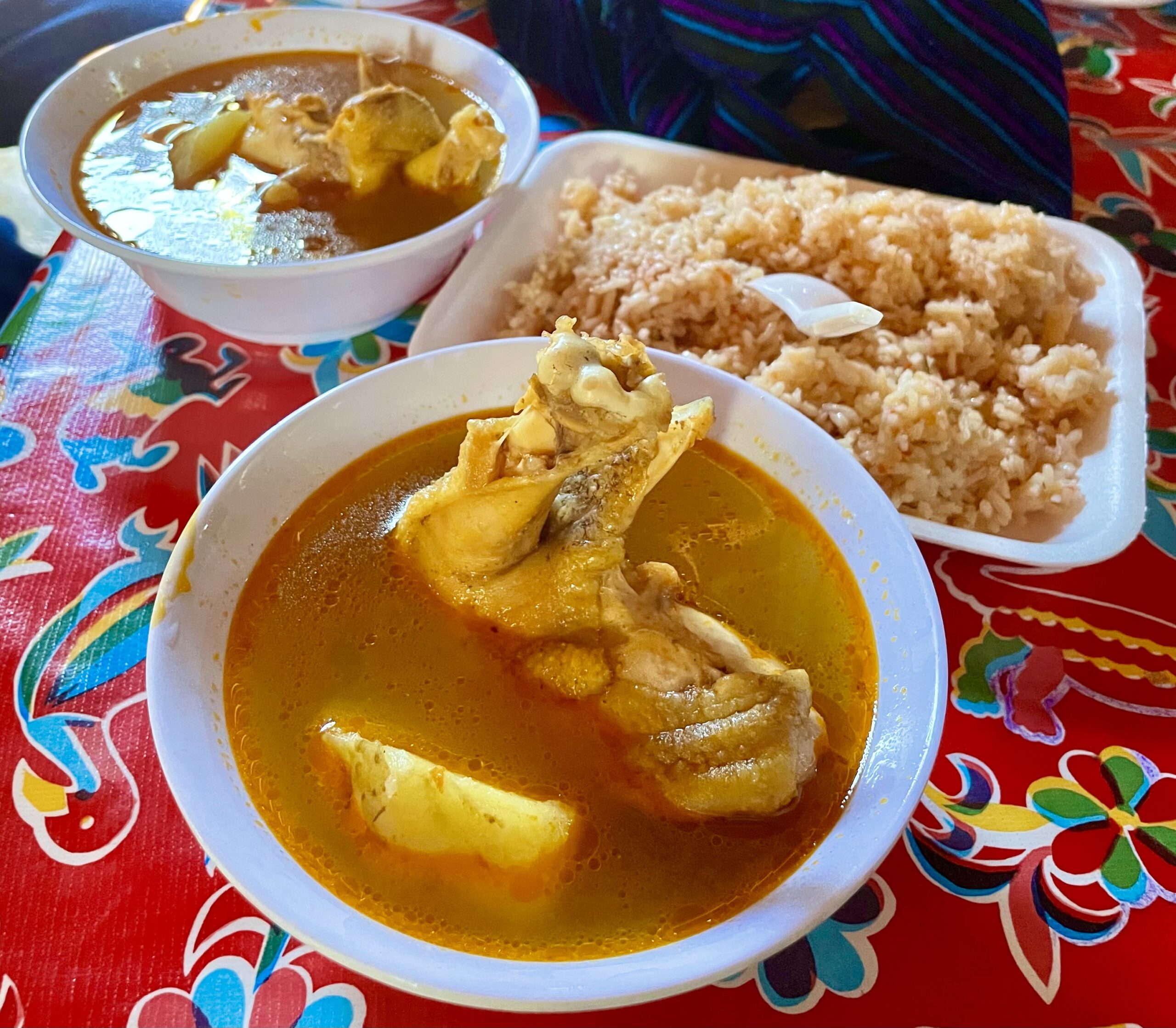
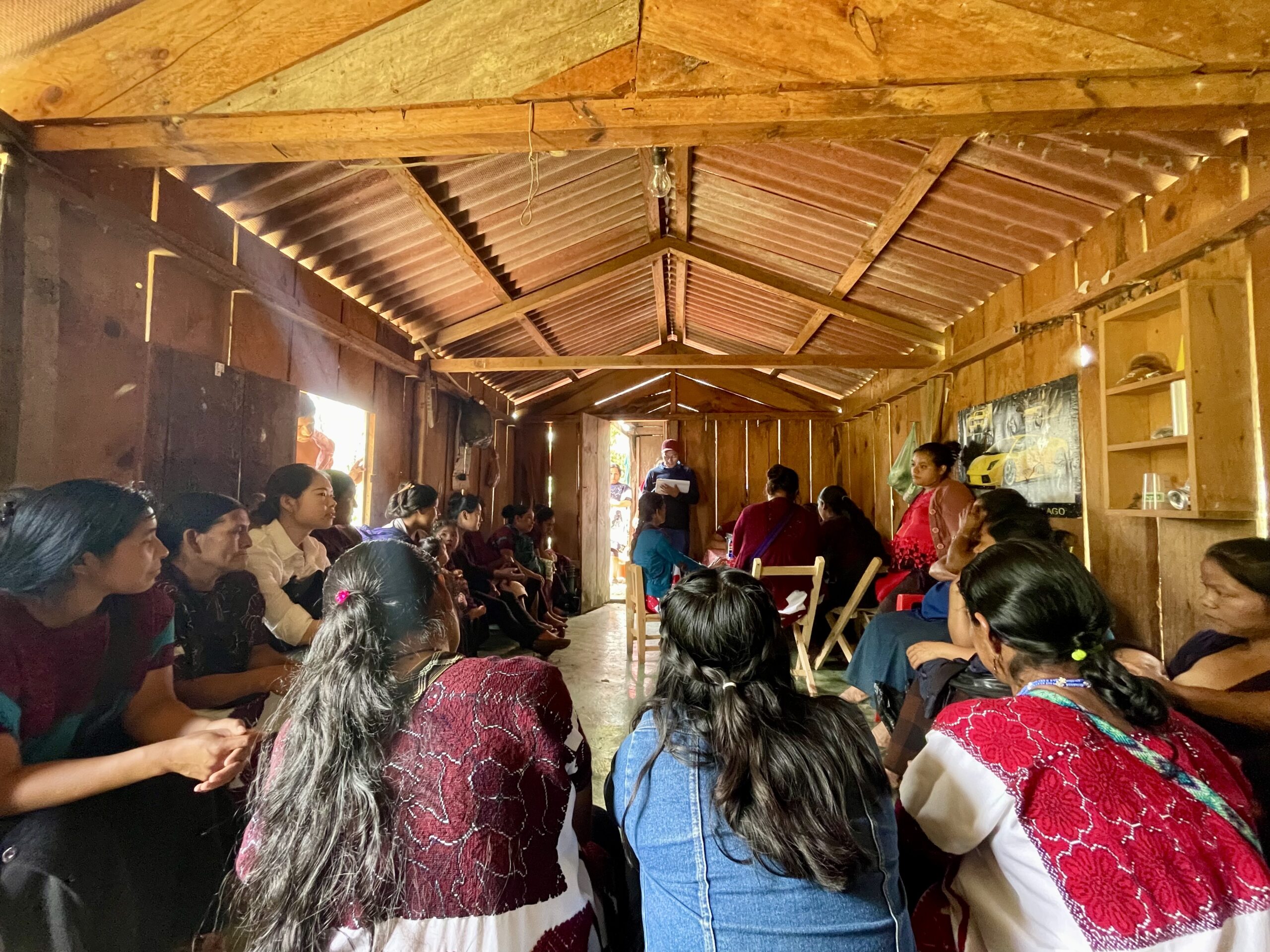
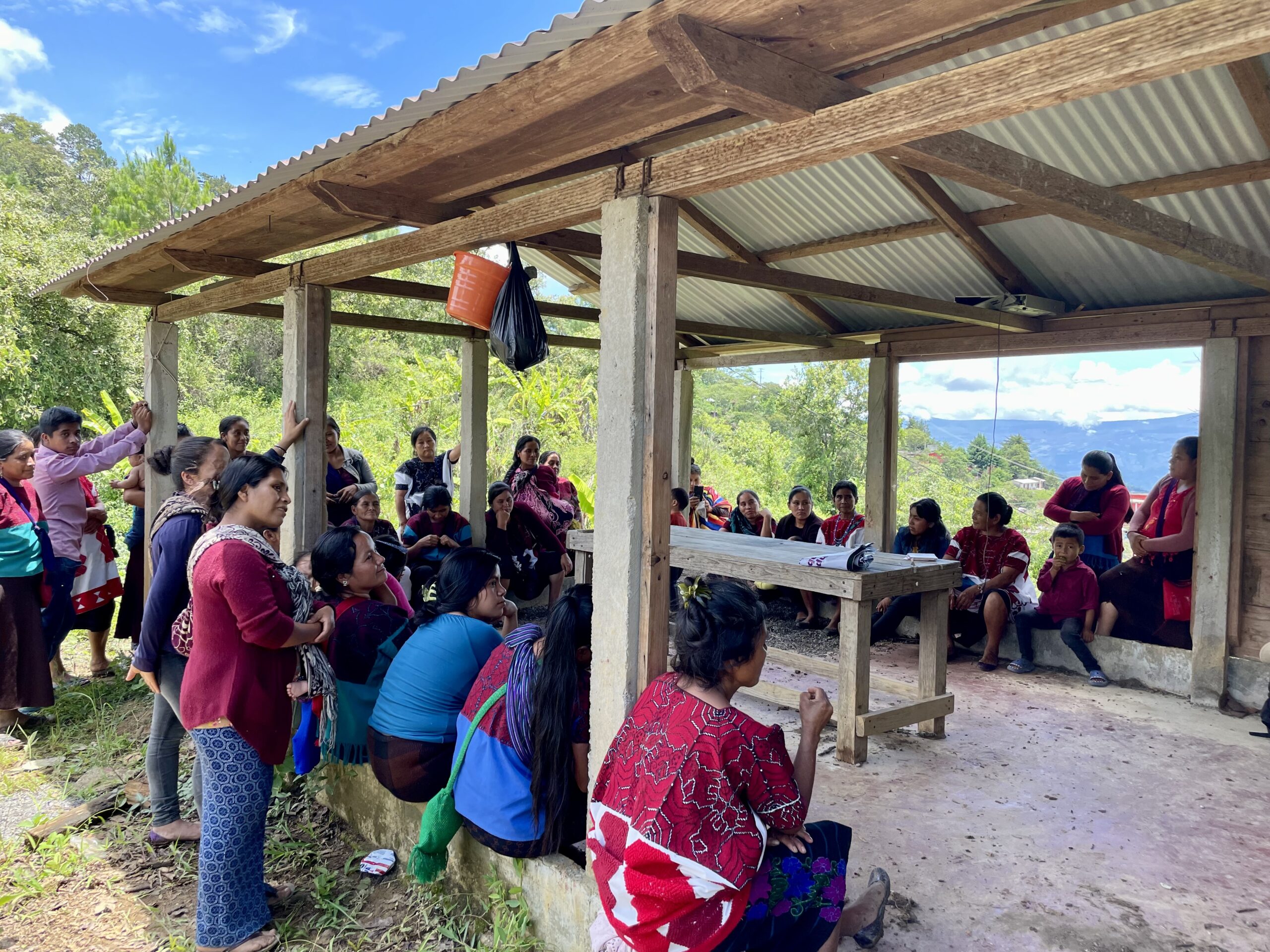
A savings group session, my interviews, and a workshop on sexual health followed the soup. The staff and I thanked the community for their time and waved goodbye to the women.
As we climbed down the hill to get back to our truck, rain started to pour like a waterfall. The steep hill became even harder to traverse with the slippery mud. Even with the sticks the women gave us to stabilize ourselves, the Trickle Up staff and I struggled and looked like toddlers just learning to walk. Laughing, I looked back and met the eyes of the women we just left.
Suddenly, the women from the community started running downhill towards us. They each grabbed one of our arms and put them around their shoulders to help us get down the hill. I was a shoulder taller than the woman helping me, but their strength was impressive. Within minutes, we could already see our truck. Despite not being able to communicate anything to each other on that journey, we hugged goodbye at the bottom of the hill.
The next day, I went to visit our participants in Larrainzar with Sheila and Abel from Trickle Up’s Monitoring and Evaluation team. Abel worked with the women to assess their businesses’ health, and Sheila offered recommendations to improve their businesses.
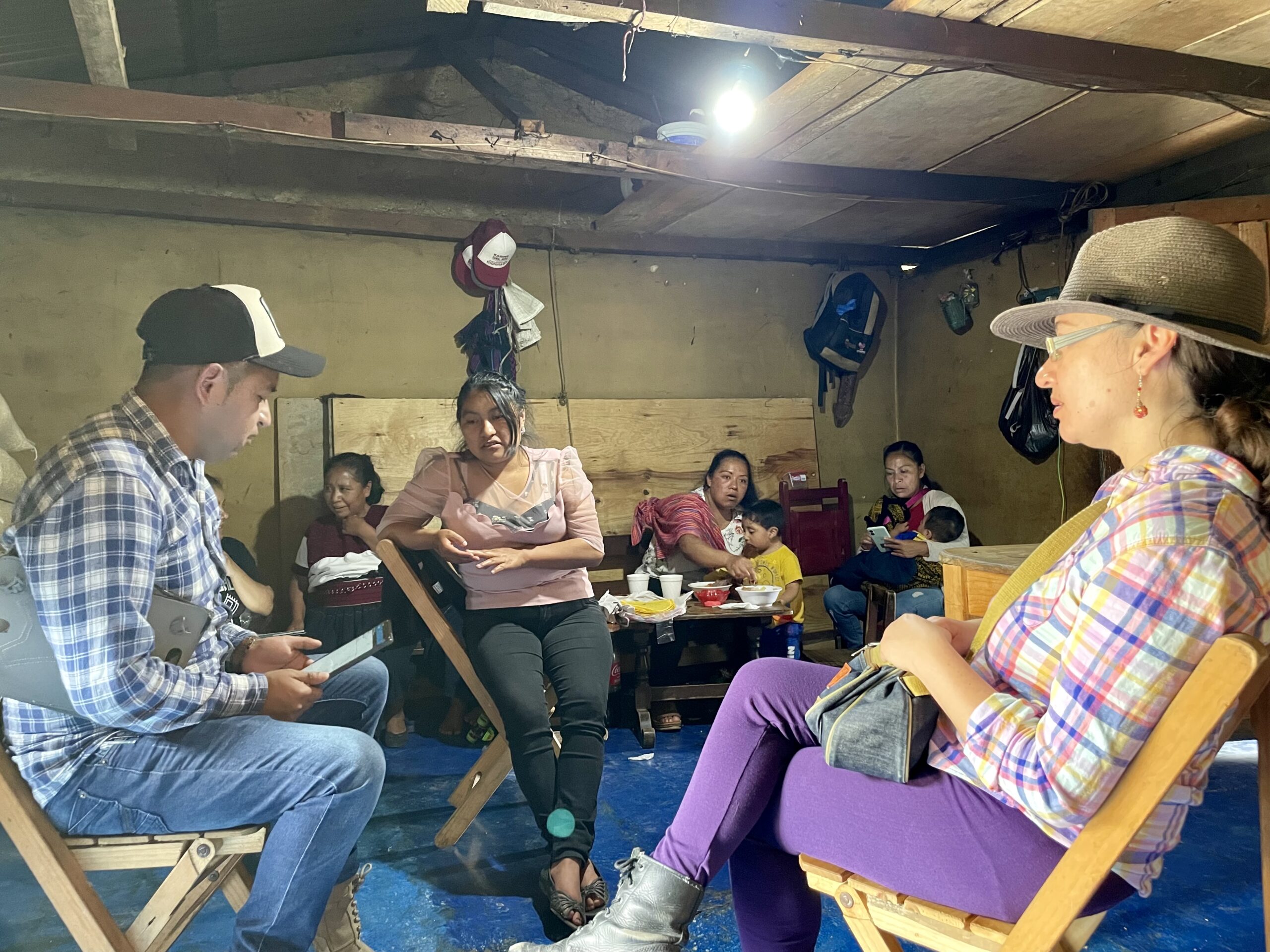
While Abel and Sheila conducted serious business in Tzotzil, I talked to a 17-year-old girl at one of the households whose mom and grandma are both Trickle Up participants. Her name is Liliana, and she had been learning the traditional Mayan weaving and sewing techniques from her grandma. She is in her final year of high school, so I asked what her plans are for after.
“I hope to go to university and study medicine,” Liliana said.
“We don’t have good healthcare here and a lot of people cannot get treatment when they are sick. I want to learn medicine in a city and come back to help my community,” she responded.
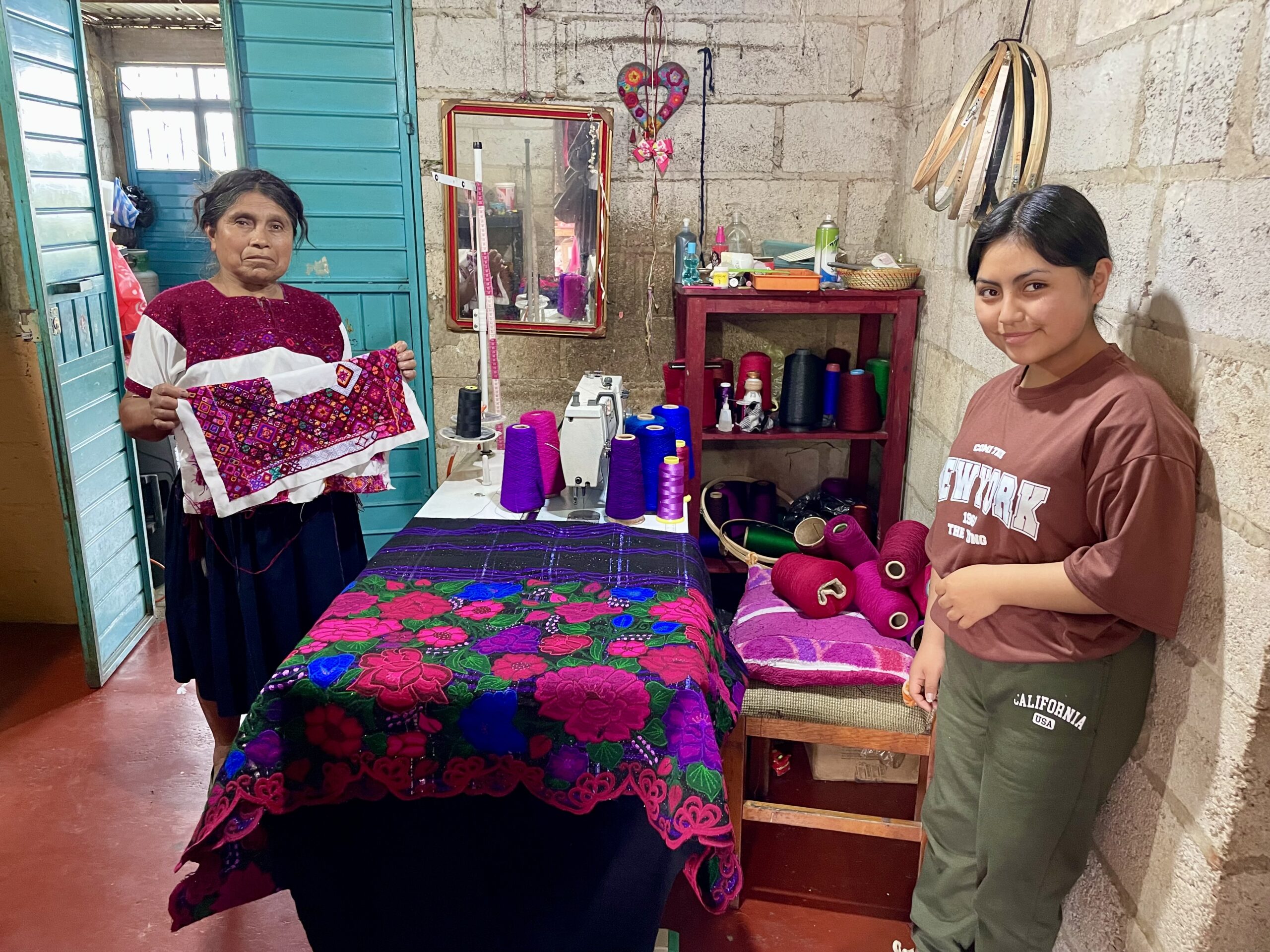
I could not be more excited for Liliana. Her mother and grandmother have both been working diligently on their businesses and savings. They assured me that in this household, women could do it.
I realized the deeper meaning of Trickle Up’s work—instilling confidence in women and opening up new possibilities for their children and communities. Jacqueline Novogratz must have noticed the same when she said, “The opposite of poverty is not wealth, but dignity.”
On the long ride back to San Cristobal with Sheila, I shared what I had spoken about with Liliana. She smiled and said that’s why she stays at Trickle Up. She is from Mexico City originally, but she has worked internationally on addressing poverty. She moved to San Cristobal for this job with her young daughter as a single mom. Seeing her coaching in action today, I could tell she empathized with our participants and shared her strength with them.
I told her I admire her strength, and she said, “we have to be strong, if we are not, how can we empower the women?”
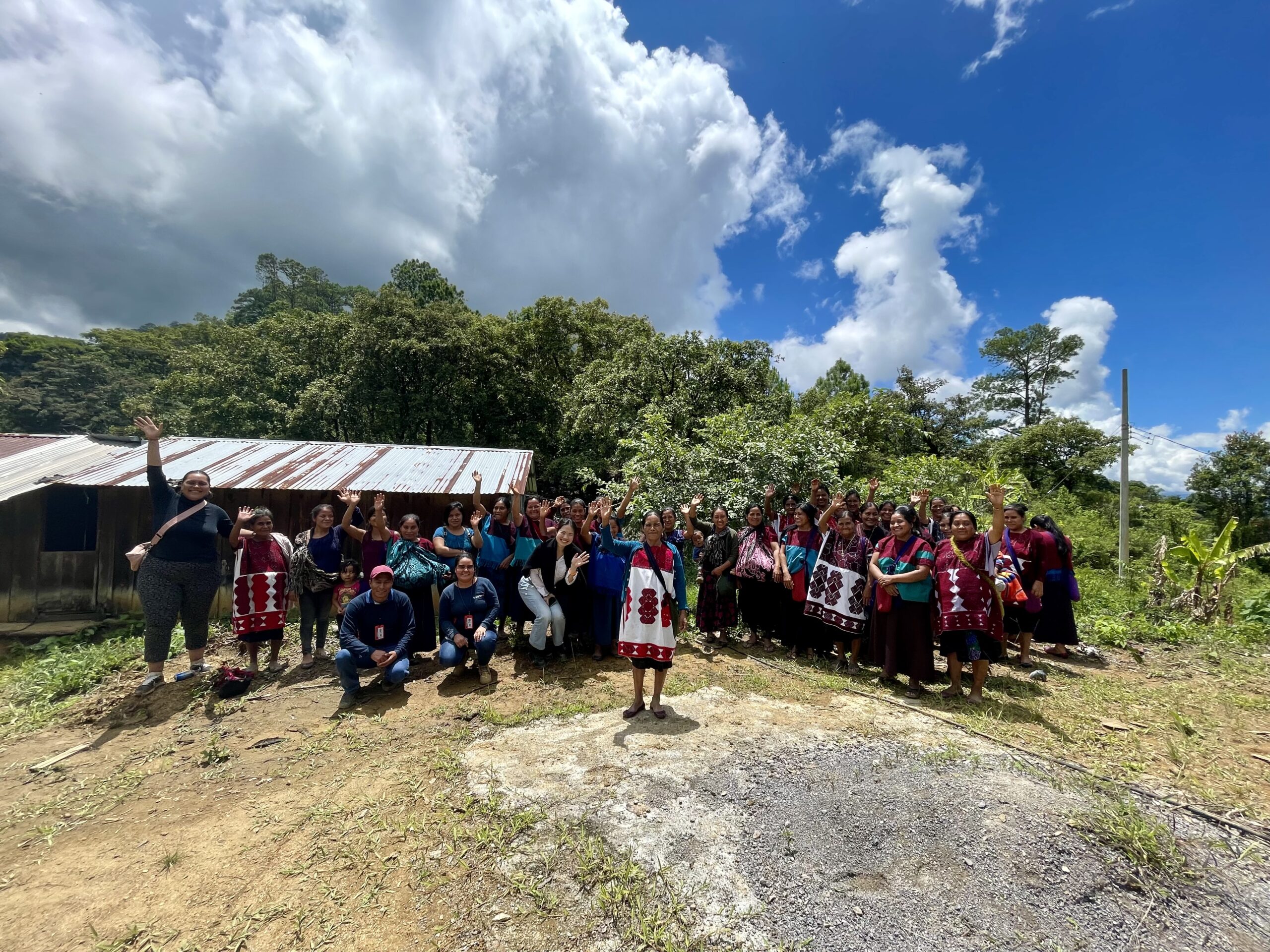
In both Oaxaca and Chiapas, I saw so many examples of resilience among our participants. This time, I also learned how generous the Trickle Up women serving our participants are.
As I finished my internship, I felt so grateful for the opportunity to visit the field. There, I saw the reality of women living in extreme poverty, but I also saw the bright possibility for these women. Poverty exists – but there are solutions – and we can work together to be part of the solution.
This blog post was written by Valentina Xu, a Trickle Up intern, during the summer of 2024. Valentina previously worked at Goldman Sachs for two years and has been volunteering with Trickle Up since winning the Goldman Sachs Analyst Impact Fund. Valentina graduated from Cornell University and will be a Schwarzman Scholar this fall.
Views expressed here are solely of the author.
